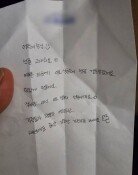Pres. Moon emphasizes end-of-war declaration at U.N.
Pres. Moon emphasizes end-of-war declaration at U.N.
Posted September. 23, 2020 08:00,
Updated September. 23, 2020 08:00
South Korean President Moon Jae-in called for support for an end-of-war declaration from the United Nations and the international community in his keynote speech on Tuesday morning, saying, “War should be ended on the Korean Peninsula completely and indefinitely.” He also suggested creating a more inclusive Southeast Asian health organization, which involves two Koreas, China, Japan and Mongol to better cooperate in the fight against COVID-19.
Moon’s mention of the end of the war, which has been forgotten since the nuclear talks between the United States and North Korea broke down, hints at his hope to reignite the dialogue. However, it is clear from the previous talks between Washington and Pyongyang that the end-of-war declaration is off the table. The South Korean government suggested declaring an end to the Korean War as a starting point for efforts towards denuclearization and peace, which, unfortunately, was not understood the same way by the United States and North Korea.
The United States expressed concerns that the declaration could allow North Korean leader Kim Jong Un to remain in power without making any progress with denuclearization. North Korea used the declaration to receive security guarantees and have sanctions lifted, but it seems to have given up on it as Washington insists that denuclearization is a prerequisite. This is why the declaration is now seen more as South Korea’s obsession rather than as a catalyst for dialogue.
The joint statement of the leaders of the United States and North Korea in Singapore drew a great deal of attention from the world, but it ended up being just empty promises. The only way to undo the failure and start over is for Pyongyang to provide a concrete roadmap to denuclearization detailing from the start to end. The declaration of the war, no matter how noble words are used, would be yet another diplomatic show if it is not accompanied by denuclearization.
With 40 days left until the U.S. presidential election, the Korean Peninsula is faced with a heightened risk of instability as it is difficult to predict what provocations North Korea would engage in. If President Moon made yet another political statement without addressing the grave risks posed by the North in his speech, he should ask himself if he is being responsible as someone who has stakes in the issues on the Korean Peninsula.







